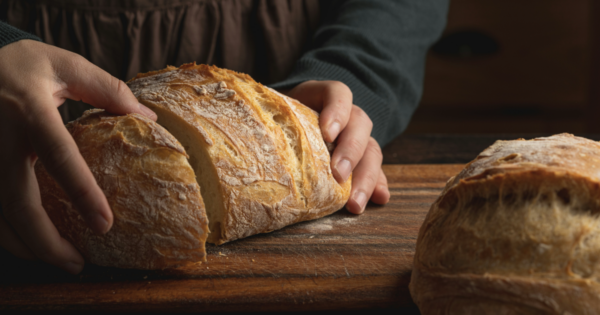
For thousands of years, bread has been essential to human nutrition — a dietary staple enjoyed daily across countless cultures, likely because flour could be stored year-round, ensuring a reliable food source during times of scarcity.
In fact, our ancestors ate bread in quantities that would surprise many modern eaters. According to household guides from the 1880s, the average adult man was expected to consume a remarkable 16 pounds of bread per week, while women consumed about 8 pounds weekly. That’s over a pound of bread a day!
Today, bread has a very different reputation. Once considered a fundamental food, it’s now often avoided and can cause various health problems — from bloating and brain fog to more serious conditions like celiac disease and non-celiac gluten sensitivity. But what changed? Is bread itself the problem, or is there more to this story?
As a Note: I am not writing this article to convince you to eat bread. Instead, I write this in hopes to reduce food fear in this (sometimes toxic) modern health space. It is a lot more empowering to better understand the WHY behind certain things, instead of arbitrarily labeling food as BAD or GOOD.
The Ancient Relationship Between Humans and Bread
Our love affair with bread is ancient — dating back thousands of years when early civilizations first ground wild grains and mixed them with water to create rudimentary flatbreads. Bread is deeply embedded in sacred texts, rituals, and traditions, symbolizing sustenance, community, and faith across cultures.
The Egyptians, for example, played a pivotal role in the evolution of bread-making around 5,000 years ago, likely discovering leavened bread through wild yeasts fermenting dough left exposed to the elements. This discovery revolutionized human nutrition and led to sourdough fermentation becoming the dominant bread-making method across cultures.
Unlike modern methods, traditional bread-making wasn’t focused on speed or shelf-life — it prioritized nutrition, digestibility, and flavor through time-tested techniques.
For more information on fermenting, additives, glyphosate, gluten, seed oils, continue reading: https://organicconsumers.org/the-truth-about-bread-why-your-ancestors-could-digest-it-and-why-you-might-not/
